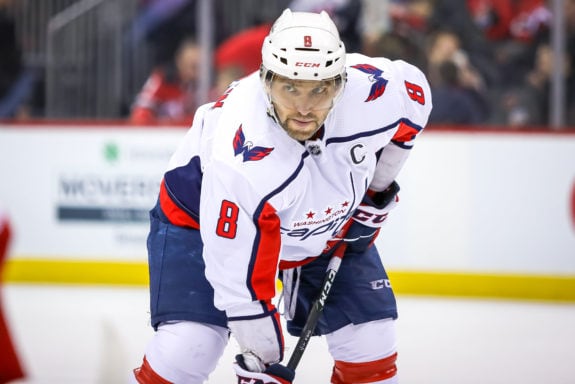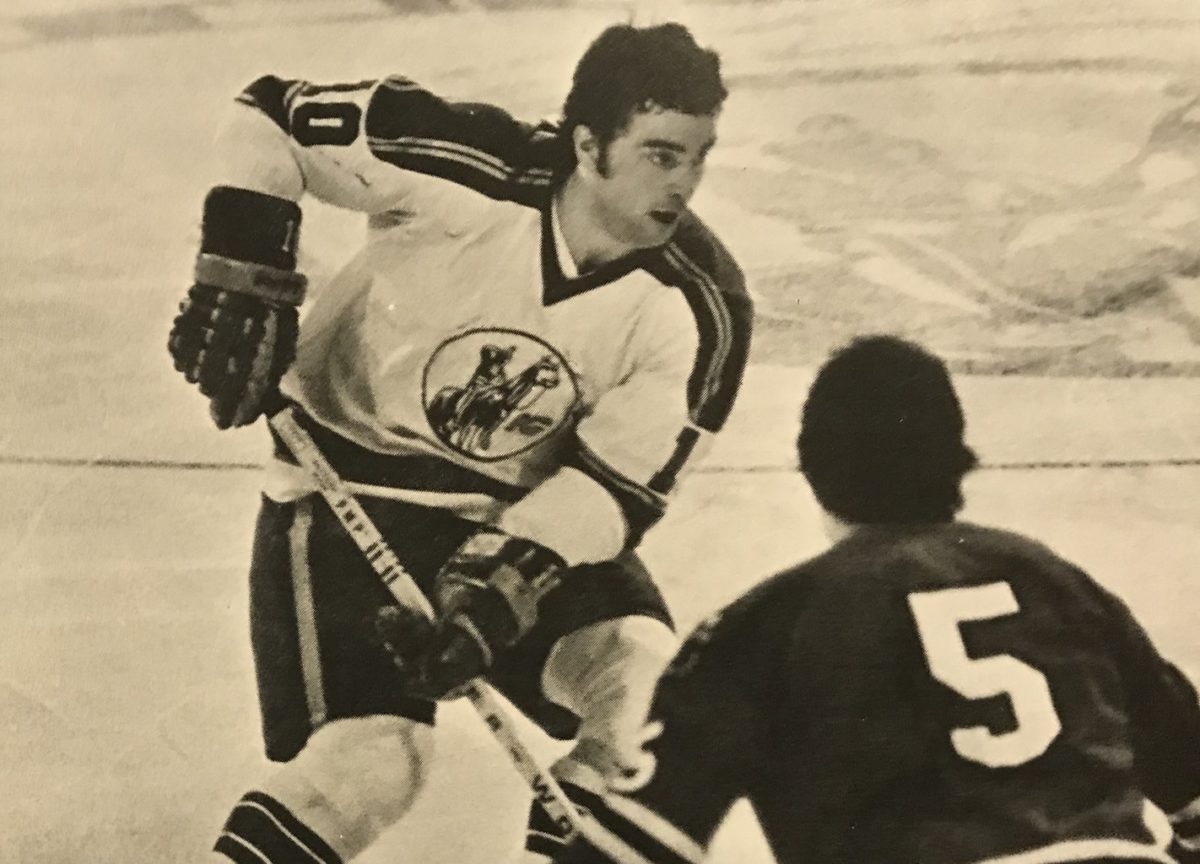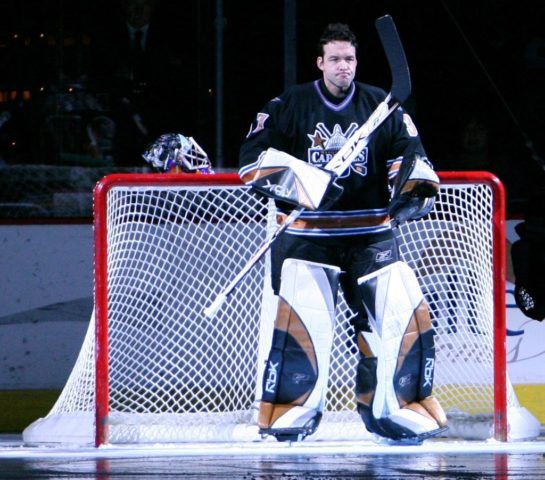Rumors surfaced this week the Washington Capitals may end up heading to Russia next year, playing exhibition games against Kontinental Hockey League (KHL) clubs as part of the 2022-23 preseason, along with the Tampa Bay Lightning.

It isn’t a new rumor for the Capitals to head to Russia in some combination of exhibitions, and perhaps even regular-season games against another NHL club, as there has been talk of doing such a tour for several seasons now, which had been delayed due to various complications, and more lately with COVID and travel concerns. But with Alexander Ovechkin on Washington’s roster, along with fellow countrymen Evgeny Kuznetsov, Dmitry Orlov and Ilya Samsonov, the thought process is whenever it was feasible to pull off, Washington would be an attractive NHL opponent to send overseas to play in Russia at some point.
While it is easy to focus on just Ovechkin, the Capitals have a long history with Russia that dates back to the 1980s.
Back in 1989, the Capitals and Calgary Flames became the first NHL clubs to play games in the Soviet Union, playing on a Friendship Tour of the country before the 1989-90 season.
While numerous NHL players had played games in the Soviet Union, from the 1972 Summit Series to other tournaments, and the Soviet clubs had barnstormed NHL clubs in various tours during the 1970s and 1980s – including one Soviet team making a stop in Landover to play the Capitals in a memorable 1980 exhibition – no individual NHL teams had played in the Soviet Union before.
Before the ‘Miracle’
Just over a month before the United States hockey team made history against the Soviets at Lake Placid, Wash., it played its first game against a Soviet club on Jan. 8, 1980, skating to a 5-5 tie in an exhibition at the Capital Centre in Landover against Moscow Dynamo.
While it didn’t count in the standings, with tensions high between the U.S. and U.S.S.R., it certainly felt like more than that to some of the players.

“This game against the Russians was more important than any game in the regular season,” Capitals forward Bob Sirois told the Washington Post (“Dynamo, Capitals Tie, 5-5″, Wasington Post, 1/9/80). “It is the fourth time I’ve played them in my career and the second tie, I’ve never beaten them. But we feel we should have won.”
“Coming back to the dressing room after the second period we heard the fans cheering us and it got us going,” he added. “Then [Coach] Gary Green gave us a good pep talk. We thought we’d win it.”
Washington forward Guy Charron added, “I have a lot of respect for these guys and when I play hockey against them, I want to play my best. We took pride. We knew it meant something to our fans.”
Sirois gave the Capitals the lead with just 9:21 left in regulation, but Dynamo’s Vladimir Semenov tied the game with 5:58 remaining to bring the end to Dynamo’s tour, going 2-1-1 against the NHL clubs.
Something Different in the Soviet Union
In early 1989, when the NHL decided to send a pair of clubs to the Soviet Union, the Capitals were an obvious choice for symbolic reasons. Washington was one of the league’s top clubs during the decade, and won its first Patrick Division regular-season title in 1988-89.
However, for Washington general manager David Poile, the decision to embark on history was a bit more straight forward. The Capitals had been notorious for slow starts in previous seasons, so this was a chance to shake things up.
“We’ve tried everything else, so why not this?” Poile told the Washington Post (“‘Capitals Pack Their Tents, Wing Eastward,” Washington Post, 9/3/89). “This is the first time since I’ve been the manager that we’ve faced a competitive training camp. We’re hoping it makes us sharp for the start of the season. Obviously there are difficulties.”
Another tricky part is that while this would be exhibition games for the NHL clubs ramping up to play their season, they would be playing Soviet clubs who these games would mean much more to as they looked to take down members of the top league in the world — and one that had not seen the influx of players from behind the Iron Curtain yet.
“Both sides were all for the exchange and we hope the benefits to the NHL overbalance the competitive disadvantages,'” Poile said. “Obviously it’s important to the Soviets. Their goal is to win all eight games from Washington and Calgary. Our mentality in regard to preseason games is different. We would like to be competitive, but we’re more concerned with deciding individual situations rather than results.”
Making Capitals History
After playing a pair of exhibition games in Sweden, including one against former Capitals forward Bengt Gustafsson, Washington played its first game in the Soviet Union on Sept. 15, 1989 against Spartak Moscow, marking the first time an NHL club played in the Soviet capital.
In a wild game, Doug Wickenheiser scored in overtime to give the Capitals an 8-7 win in which the hosts forced the extra session with a goal in the game’s final minute. Mike Ridley became the first NHL player to score a goal in Moscow after Washington fell behind 2-0 early, and a wild game that featured the Capitals rallying to tie three times before taking the lead, only having Spartak tie it up twice by erasing one-gal Washington leads.
Two nights later, on Sept. 17, 1989 (which just so happened to be Alexander Ovechkin’s fourth birthday), the Capitals suffered their only setback of the tour after falling 7-2 to Dynamo Moscow.

Washington headed to Riga for their third game of the tour on Sept. 19, and beat Dinamo Riga 2-1 in overtime, as Tim Bergland’s goal in the extra session was the difference. The game also featured a youthful tandem in goal for Washington of Byron Dafoe and Olaf Kolzig, facing a future NHL netminder in Arturs Irbe for Riga.
“The kids are absolutely great,” coach Bryan Murray told the Washington Post (“Capitals Overcome Dinamo Riga,” Washington Post, 9/20/89). “Byron was steady and strong in stopping everything {13 shots over 32 1/2 minutes}, and the goal they scored on Kolzig, there was nothing many goaltenders would have done.
The Capitals finished the tour at 3-1-0 with a 5-4 win at SKA Leningrad on Sept. 21, before heading back to North America to resume their normal preseason schedule. Geoff Courtnall recorded a hat trick as Washington erased a 3-0 and 4-1 deficit to head to their charter flight home on a high note.
Capitals owner Abe Pollin, who made the trip overseas, joked afterwards to the team “I’m really proud of you. I know what Bryan must have said after the first period: ‘If you guys play like that the rest of the game, I’ll take your passports.'” (“Capitals End on High Note,” Washington Post, 9/22/89.)
Once back home, Murray reflected on the tour, and what it meant to the club.
‘There’s a lot of pride on the line just going in there,” Murray told UPI (“Capitals, Flames Reflect on Soviet Tour,” UPI, 9/30/89). “You don’t want to lose. You are playing for the National Hockey League and you’re hoping that you show well,’ Murray said.
“We feel very good about the fact that we went over and represented the league and did very well,” Murray added. “We were 5-1 overall, with two of the games against pretty good Swedish teams as well. No one can say to us that we didn’t carry our weight as far as a good representative is concerned. They obviously picked the right team to go.”
Fast Start Didn’t Materialize, But Capitals Made History
The fast start that Poile had hoped when he signed up for the Soviet trip for didn’t materialize, as Washington slumped out of the gate again, falling to 18-24-4 by mid-January. At that point, Bryan Murray was replaced by his brother Terry, who was coaching the AHL’s Baltimore Skipjacks. Under Terry, the Capitals managed to earn the third seed in the Patrick Division playoffs, and went on to upset the New Jersey Devils and New York Rangers to reach the Wales Conference Final for the first time in club history and give the Caps a rare dose of playoff success.

Washington also saw another Soviet team that season, playing Khimik Voskresensk on Dec. 12, 1989 at home, with the Capitals taking a 5-2 win over a club they didn’t see in their four-game Soviet tour. The next season, Washington hosted Dynamo Moscow on Jan. 8, 1991, earning a 3-2 win.
However, with the dissolution of the Soviet Union later that year, and the influx of Soviet players to the NHL in its wake, the SuperSeries tours came to an end, and there has been just one game between an NHL and Russian team since that 1991 tour.
That came in 2010, when the Carolina Hurricanes faced SKA Saint Petersburg, in an exhibition game more notable for concern by Hurricanes coach Paul Maurice keeping star Eric Staal out of the third period for fear of being targeted for injury than the result.
Of course, a couple of Capitals have skated against KHL opponents as part of the league, most notably Ovechkin, who skated for Moscow Dynamo as a 16-year-old, playing four seasons until coming over to the NHL after the end of the 2004 lockout. Ovechkin also skated for Dynamo again in 2012-13 during the NHL lockout, and he brought teammate Nicklas Backstrom with him.
Related: Alex Ovechkin’s Fast Start Keeps Him Moving Up Goal-Scoring Ladder
Kuznetsov skated for Chelabinsk Traktor for five seasons, most notably the last two electing to delay his arrival in the NHL to secure a spot on the Russian team at the Sochi Olympics by remaining in the KHL, before finally heading over to Washington four years after being picked 26th overall in the 2010 NHL Draft.

Orlov skated four years for Novokuznetsk Metallurg before heading to North America in 2010-11, and Samsonov played for the same KHL club for four years before coming over in 2018-19.
Certainly, should the Capitals elect to head back to Russia next season, while the connection between the team and hockey in that country seems to center around Ovechkin and Co., it actually runs much deeper, spanning back five decades to the 1980s.
